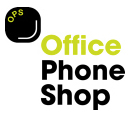
Photo Credit: PhotoAtelier/Flickr
BT recently announced that it intends to phase out the UK Public Switched Telephone Network (PSTN) and Integrated Services Digital Network (ISDN) over the next 10 years. All existing customer will be migrated to the IP network.
So what are the alternatives for businesses?
SIP
SIP trunking will replace traditional phone lines, running from a PABX (SIP-compliant or hosted) to the national, international and mobile telecoms networks. SIP stands for session initiation protocol. It is an IP telephony signalling protocol for VoIP (voice over internet protocol) calls and is the most widely used protocol in IP telephony.
SIP supports all the features of traditional telephony such as call transfer, on hold and call forwarding. Calls between one or more users at the same time are possible, with disconnection of a user allowed at any time during the call. In addition, users can join the call during a session and operators can enable or disable video connection at any time.
SIP trunk providers work in a similar way to traditional telephony providers in that they lease users a phone number and lines. There are no physical lines to install and maintain and set up and call costs tend to be lower. Connection is via a line used only for SIP trunking, over a dedicated line that carries SIP trunking with other IP traffic, or over the Internet on a virtual private network (VPN). SIP trunking allows scalability to cater for increased call volumes. You only pay for the lines you need and it is possible to share the capacity across multiple sites. SIP trunking also enables extension of voice over IP (VoIP) telephony beyond an organisation’s firewall without the need for an IP-PSTN gateway. It is becoming particularly popular amongst businesses adopting flexible working options.
Any companies still operating a traditional PBX telephone system will need to check if it is SIP-compatible. If not, investment will be necessary, in either an alternative PBX model, or a hosted platform solution.
Hosted Telephony
Hosted VoIP telephony is great for companies that need to move into an office quickly. All you need is a data connection for the voice calls to run on and you are not dependent on Openreach installing new lines, which can take over a month.
There is no major hardware investment as the phone system is in the cloud, so the Capital Expenditure is low, compared to that of a traditional telephone system. In addition, there is no system hardware to replace.
You can have a telephone number from anywhere in the UK. For example, you may have your office in London, but want to advertise in Manchester to attract more customers. VoIP allows you to have Manchester number that connect to and rings at your London office.
Disaster recovery is much easier with VoIP. Extreme weather conditions, such as snow and flooding, may prevent staff from getting in to the office. However, this does not affect your communications, as you can log in to your partition of the hosted telephone system and divert calls to your mobile or another office. Because a Hosted service sits in the “cloud“, it provides business continuity features that allow your organisation to carry on making and taking calls, whatever the circumstances and wherever you are.
Any organisation currently with BT will have the opportunity to review their business telecoms requirements and switch to an alternative provider. Switching is quick and easy and can be achieved without changing existing numbers.
This is a good time to review your needs going forward. Instead of using multiple suppliers for different aspects of your communications, bring all of that together by using the one supplier. Not only will this be cheaper, it will ensure seamless communication across the board.

